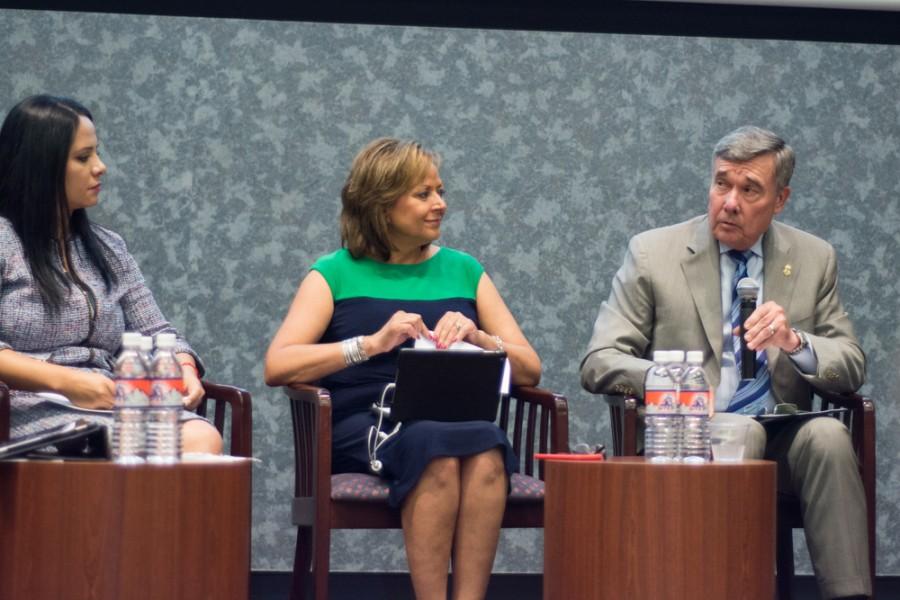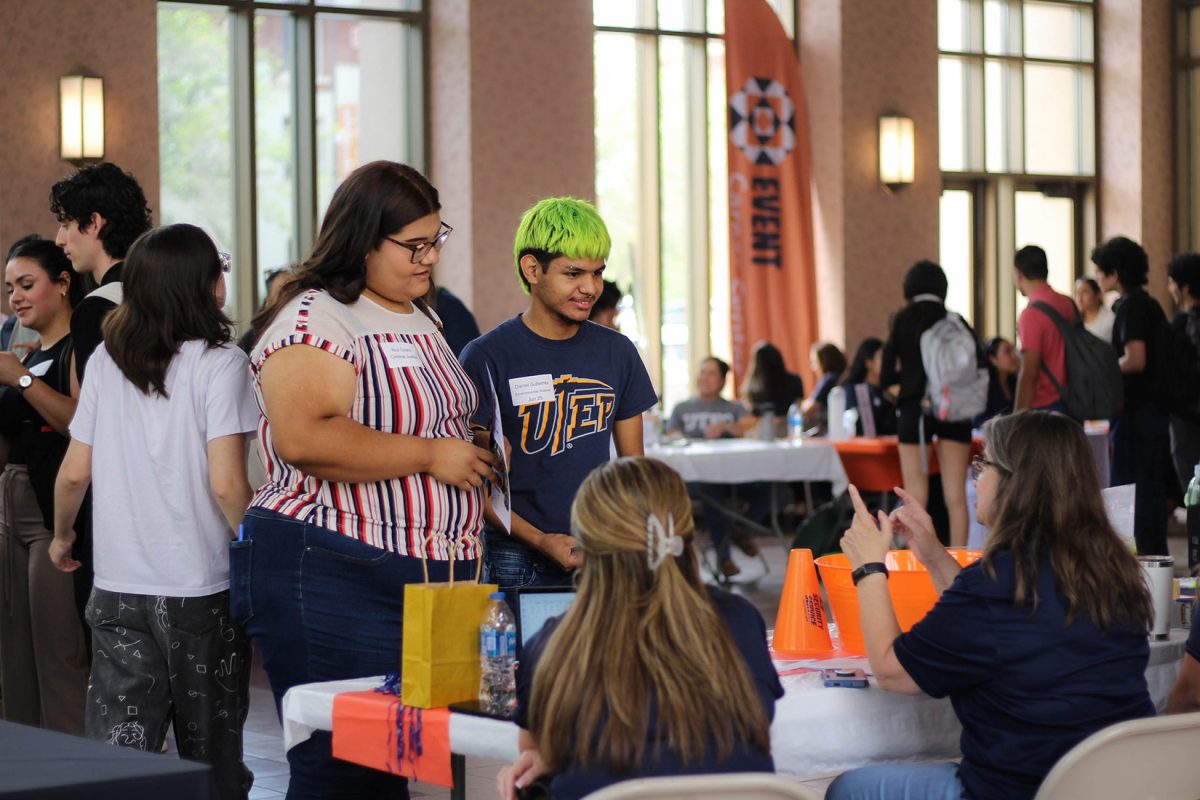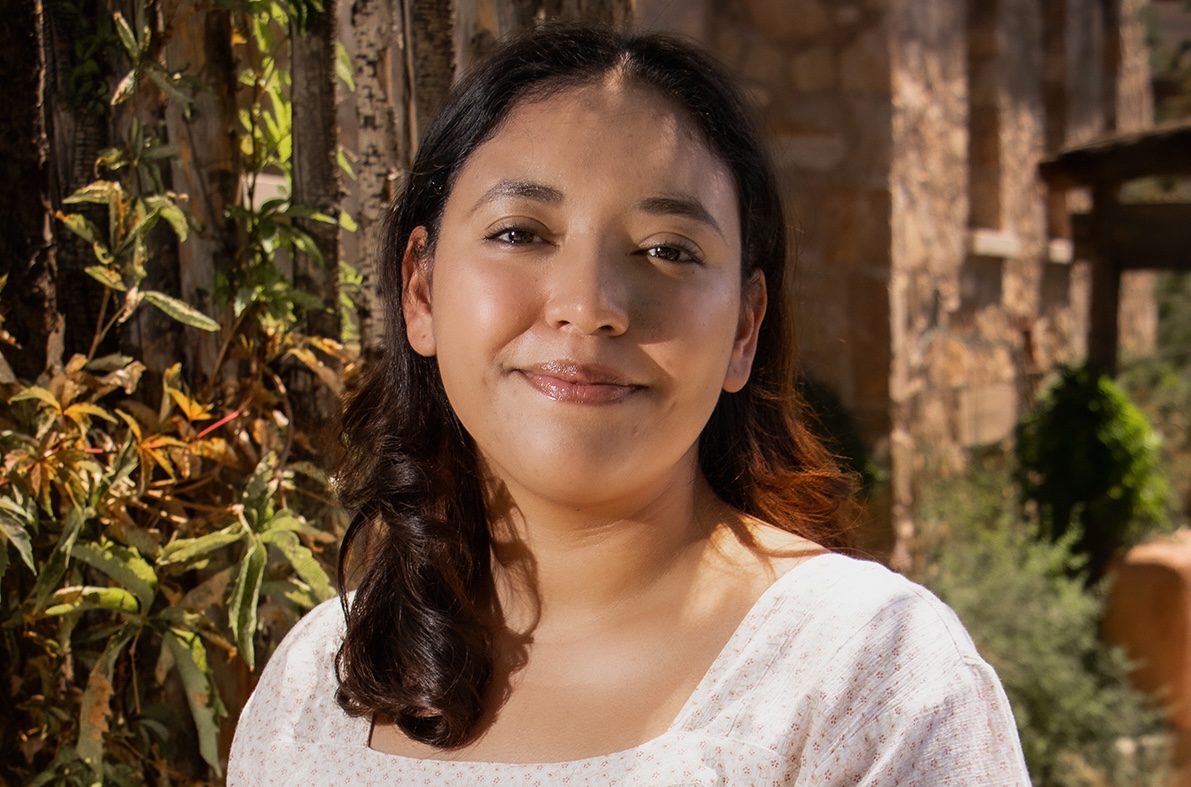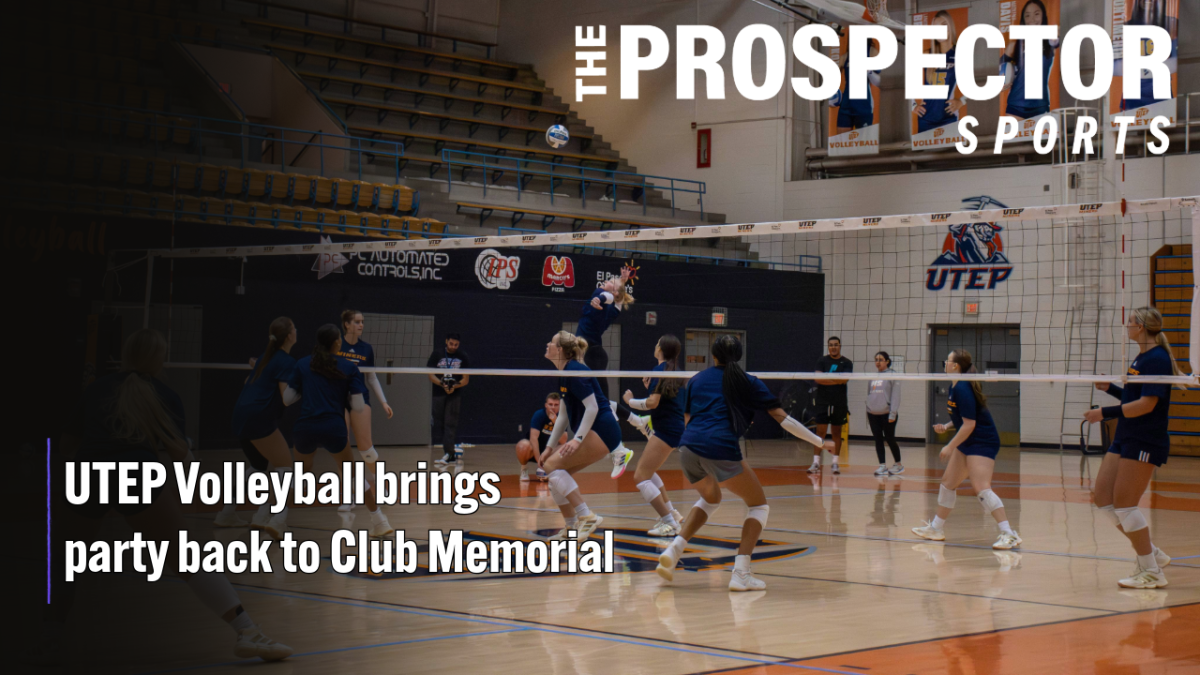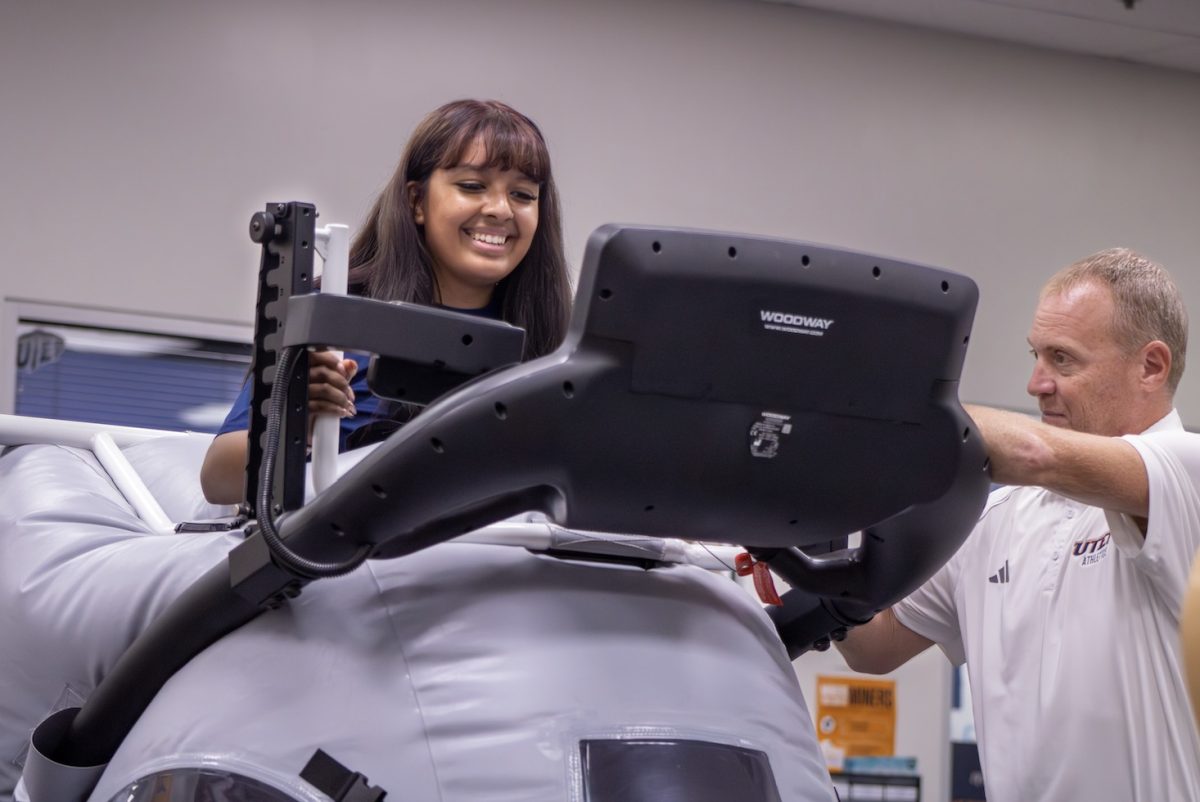EL PASO, Texas – UTEP hosted day one of the US-Mexico 2015 Summit, organized by the office of U.S. Representative Beto O’Rourke, D-El Paso. The event is meant to bring together hundreds of leaders in the public and private sectors from Mexico D.F., Washington D.C., and El Paso to take part in discussions on topics like education, economics, and energy.
The first day of the summit was separated into three conversations: how the border is viewed from both countries’ capitals, what the ideal border would look like, and what North America can learn from the border. A recurring theme through all the conversations was the importance of having a fluid border, where trade and people can easily cross.
“The border is everything and nothing,” said William Duncan, American Chargé d’Affaires to Mexico, a panelist in the first discussion.
Duncan explained the border is central to many businesses that take part in international commerce, while for others the border is nothing more than an hour wait on a bridge when going home after visiting family members.
Several panelists would later say that although crossing the border may not seem like much to some, there is still work to be done.
New Mexico Governor Susana Martinez and U.S. Customs and Border Protection Commissioner R. Gil Kerlikowske spoke of pilot programs along the border that would make commercial cargo cross faster. The pre-inspection and pre-clearing programs would check the cargo on the Mexican side, shortening wait times when crossing. One of the pilot programs will be run at the Santa Teresa point of entry.
Special programs are only one of three factors panelists said are key to speeding up crossings. Processes, personnel, and infrastructure were all named as important points to tackle if commerce and tourism are to be boosted.
“Hiring customs agents makes money for the U.S.,” said Kerlikowske.
He explained that having more agents to run all available lanes at points of entry speeds up crossings, since more people can be processed at the same time. As more people and cargo are crossing the border, more money is funneled into the U.S. as international trade.
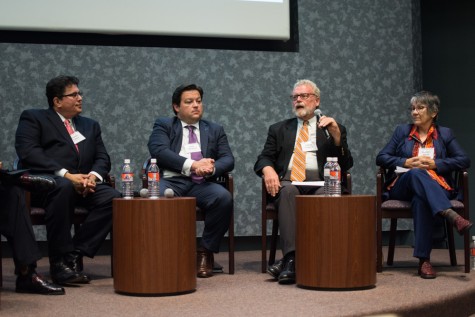
Professor William Hargrove explained the ecological problems faced by the borderland, some a result of increased international trade, during the third conversation THursday at the US-Mexico Summit.
Improving infrastructure, panelists said, doesn’t just mean building more bridges.
It was also said that upgrading the technology at border crossings could significantly help with wait times. Some suggestions were expanding the SENTRI Trusted Traveler Program (Express Lane), and installing more radion readers to activate Ready Lanes. These lanes are equipped to read the RFID chips inside new passport, residency, and SENTRI cards, cutting down on the time customs officers need to check identities.
The importance of improving wait times was not lost on any panelists Thursday.
“We need to erase the border, it is imperative to our competitiveness worldwide,” said Hunt Companies Executive Chairman, Woody Hunt.
With several federal representatives from both countries, part of the discussion centered on the the difficulty of drafting legislation for the area.“You can’t legislate on what we don’t know,” said Mexican Senator Gabriela Cuevas Barrón.
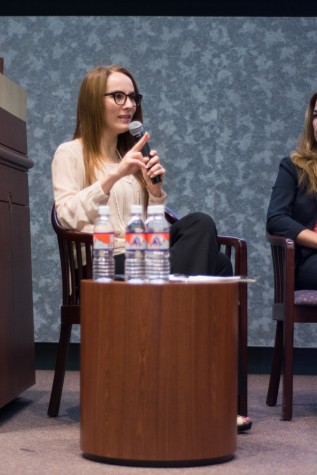
Mexican Senator Gabriela Cuevas Barrón spoke about the importance of keeping people in mind when drafting legislature during the first conversation at Thursday’s US-Mexico Summit.
She, along with O’Rourke and U.S. Representative William Hurd (R-San Antonio) spoke of how the borderland is only understood by those who visit it.
“I don’t think the border region is well understood outside of the border region,” said Duncan.
Panelists said that some government officials still think the area between the U.S. and Mexico is full of lawless bandits and drug traffickers.
Hurd, and ex-CIA agent, said he came up with an unorthodox metric to find out if a city is dangerous.
“If I see a pretty girl walking a dog I decide the place isn’t dangerous…one day we were driving through Juarez and a friend said ‘Hey, Will, look! There’s a pretty girl walking a dog,’” Hurd said.
“I’ve been to dangerous places, and El Paso is not a dangerous place.”
The panelists went on to discuss the importance of actually visiting the border in order to carry meaningful dialogue. They said many internationals issues are delicately nuanced, and take personal experience to understand.
Students attending the summit said they hoped the discussions meant good for the region, and encouraged students to attend the second day of talks on Friday.
“As individuals who live in this community it’s important to learn how binational trade works, and how both countries are dependent on one another,” said Mariana Villeda, sophomore psychology major at UTEP.
The summit continues Friday at 7:30 a.m. where it will begin at UTEP’s Undergraduate Learning Center before moving to Juarez’s Paso del Norte Cultural Center at 11:30 a.m.
Julio Cesar-Chavez may be reached at [email protected]

